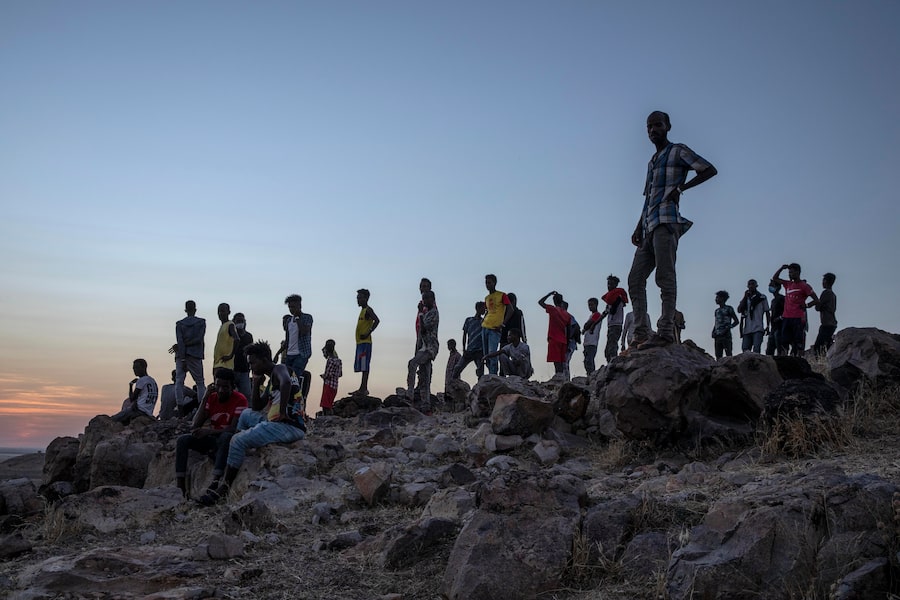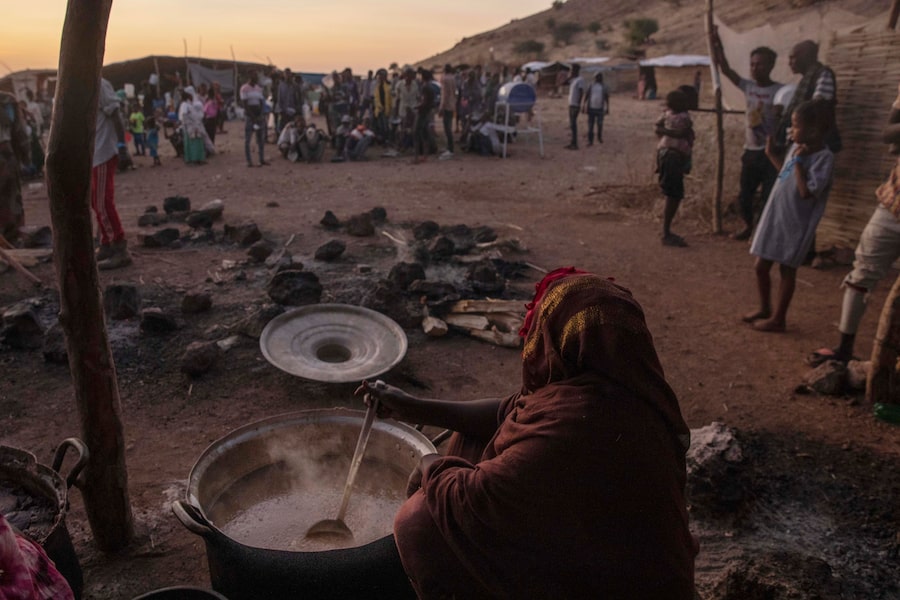Ethiopian troops, backed by tanks and planes, have been ordered to launch a final assault on Mekele, a city of 500,000 people, despite worldwide pleas for negotiation instead of war.
Prime Minister Abiy Ahmed promised that his soldiers would take “all efforts” to ensure that the Tigrayan capital is not “severely damaged” by the attack. But relief agencies and global leaders are deeply worried that the assault could lead to massive civilian casualties and war crimes.
A delegation from the African Union has arrived in Ethiopia, hoping to negotiate a solution to the conflict that has reportedly killed thousands of people in the Tigray region. On Thursday, however, the delegation was unable to meet Mr. Abiy.
The African delegation is now expected to meet Mr. Abiy on Friday, although its prospects are uncertain. The Prime Minister has complained of “unwelcome and unlawful acts of interference” by foreigners, and he has rejected any suggestion of negotiation with Tigray’s ruling party, the Tigray People’s Liberation Front (TPLF).
Mr. Abiy continued to strike a hard line in his statement Thursday, denouncing the TPLF as “evil” and “criminal.”
Earlier this week, his military warned that it would show “no mercy” in its assault on Mekele if the city’s residents refused to flee. The government issued an ultimatum to the TPLF to surrender within 72 hours, and the deadline expired on Wednesday night. With communications shut down and media barred from the region, it was difficult to know if the assault had begun.
“The last peaceful gate which had remained open for the TPLF clique to walk through has now been firmly closed as a result of TPLF’s contempt for the people of Ethiopia,” Mr. Abiy said in a statement on Thursday.
He urged the people of Mekele to “stay at home and stay away from military targets.” The military has devised a strategy to capture the TPLF leaders “without harming innocent civilians, heritage sites, places of worship, development institutions and property,” he said.
But most analysts were skeptical that civilian casualties could be avoided. The TPLF is heavily armed, with an estimated 250,000 fighters. It has mobilized large numbers of volunteers in Mekele who are armed with Kalashnikov assault rifles and have begun digging trenches to defend the city, according to the Reuters news agency.
“The expanding hostilities in Tigray raise grave concerns about the ability of all parties to the conflict to minimize harm to a civilian population already suffering from food and fuel shortages,” said Laetitia Bader, the Horn of Africa director at Human Rights Watch.
“Despite the Ethiopian military’s advance warnings to residents of Mekele, warnings alone do not absolve the government of its duty to take constant care to protect civilians when carrying out military operations in urban areas that are home to thousands of people who may not be able to reach more secure areas,” she said in a statement.
The war in Tigray erupted on Nov. 4 after rising tensions between the Ethiopian government and the TPLF, a long-dominant faction that lost political power when Mr. Abiy became Prime Minister in 2018. Refusing to join the new ruling party, the TPLF defied the federal government, called its own elections in Tigray and seized control of a federal military base in the region.

Tigray Region
0
2,000
ERITREA
SUDAN
KM
Gulf of Aden
ETHIOPIA
SOMALIA
Addis Ababa
SOUTH
SUDAN
0
250
KM
KENYA
THE GLOBE AND MAIL, SOURCE: TILEZEN;
OPENSTREETMAP CONTRIBUTORS; HIU

Tigray Region
ERITREA
0
2,000
SUDAN
KM
Gulf of Aden
ETHIOPIA
SOMALIA
Addis Ababa
SOUTH
SUDAN
0
250
KM
KENYA
THE GLOBE AND MAIL, SOURCE: TILEZEN; OPENSTREETMAP
CONTRIBUTORS; HIU

Tigray Region
ERITREA
SUDAN
0
2,000
KM
ETHIOPIA
SOMALIA
Addis Ababa
SOUTH
SUDAN
0
250
KENYA
KM
THE GLOBE AND MAIL, SOURCE: TILEZEN; OPENSTREETMAP CONTRIBUTORS; HIU
The United Nations and its humanitarian partners in Ethiopia are “gravely concerned about the safety of civilians in Mekele, including more than 200 aid workers who remain in the city,” the UN Office for the Co-ordination of Humanitarian Affairs (UNOCHA) said in a report released on Thursday.
Janez Lenarcic, the European Union commissioner for crisis management, urged the Ethiopian government to cease hostilities, look for a political solution and avoid any further escalation or any ethnically targeted violence.
“The danger of a major humanitarian crisis is imminent,” he said in a tweet Thursday.
Jake Sullivan, national security adviser to U.S. president-elect Joe Biden, said he is “deeply concerned about the risk of violence against civilians, including potential war crimes, in the fighting around Mekele.”
More than 43,000 refugees have fled across the border to Sudan to escape the fighting in Tigray. But there were multiple reports Thursday that the refugee exodus was being blocked by Ethiopian soldiers, who were stationed near the Sudan border. UN statistics showed that the flow of refugees had dropped from as many as 6,800 a day in early November to less than 1,000 a day in recent days.
In its latest report on the Tigray conflict, UNOCHA described the humanitarian situation as “highly tense and volatile,” with thousands of people at risk, including about 96,000 people in Eritrean refugee camps in Tigray.
“Shortages of fuel and cash are becoming very critical,” the report said, quoting agencies such as UNHCR, the UN’s refugee agency.
“According to UNHCR, for example, food supplies for the camps will run out in one week and water will cease imminently if humanitarians have no access to fuel for the water pumps.”
Most of the 600,000 people in Tigray who rely on monthly food assistance have not received their November rations, and a further 250,000 people who are “among the poorest” have not received their normal monthly support payments, the report said.
Because of military blockades of roads in the region, “there is great concern about the delivery of the most basic services, including water and essential medicines,” it said.
Our Morning Update and Evening Update newsletters are written by Globe editors, giving you a concise summary of the day’s most important headlines. Sign up today.








 Geoffrey York
Geoffrey York